Location: Rayagada District, Odisha
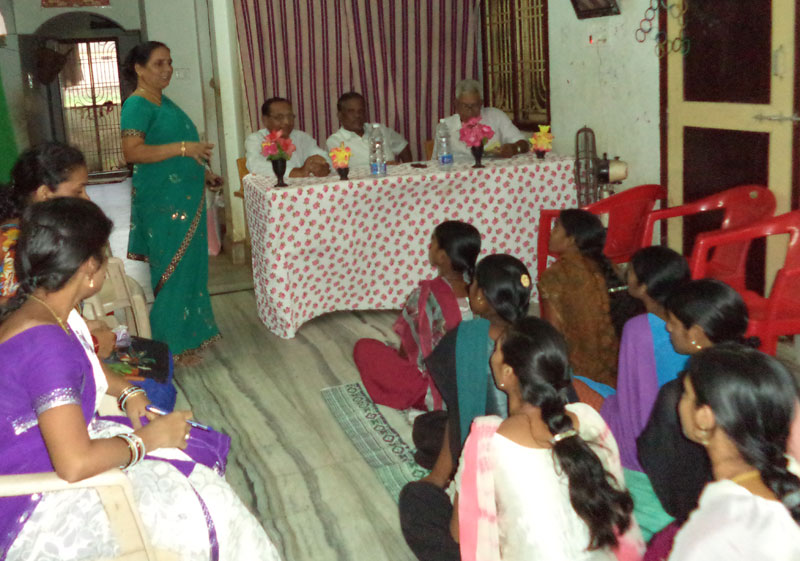 SNEH’s ‘Swadhar Gruha’ in Rayagada town in Odisha currently accommodates some 50 destitute women and girls, many of whom have been ostracized and abandoned by their families or their communities. This is the only home functioning in this tribal-dominated district, and the primary aim of this project is to either reconcile the women with their families of attempt to rehabilitate and mainstream them by providing vocational skills training. During their stay at the Home, the women are provided food, shelter, healthcare and legal aid, should they require it.
SNEH’s ‘Swadhar Gruha’ in Rayagada town in Odisha currently accommodates some 50 destitute women and girls, many of whom have been ostracized and abandoned by their families or their communities. This is the only home functioning in this tribal-dominated district, and the primary aim of this project is to either reconcile the women with their families of attempt to rehabilitate and mainstream them by providing vocational skills training. During their stay at the Home, the women are provided food, shelter, healthcare and legal aid, should they require it.
They undertake vocational training courses in tailoring, leaf-plate making, appliqué work, embroidery and saree-making, to bolster their employment potential so that they can become self-sufficient and financially independent. Frequent psycho-social, legal and trauma counseling are also provided to these women.
In 2015-16, of the 89 women housed at Swadhar Gruha, 74 were rehabilitated. SNEH is also a ‘service provider’ to check domestic violence in the Rayagada district. Lawyers are made available by the organization to provide free legal advice and to help the women reconcile with their husbands or in-laws. The Swadhar Gruha enjoys a good rapport with the district and local authorities, and is managed by a ‘Home Committee’ comprising advocates, social activists, reporters, police personnel and other government officials from the district.

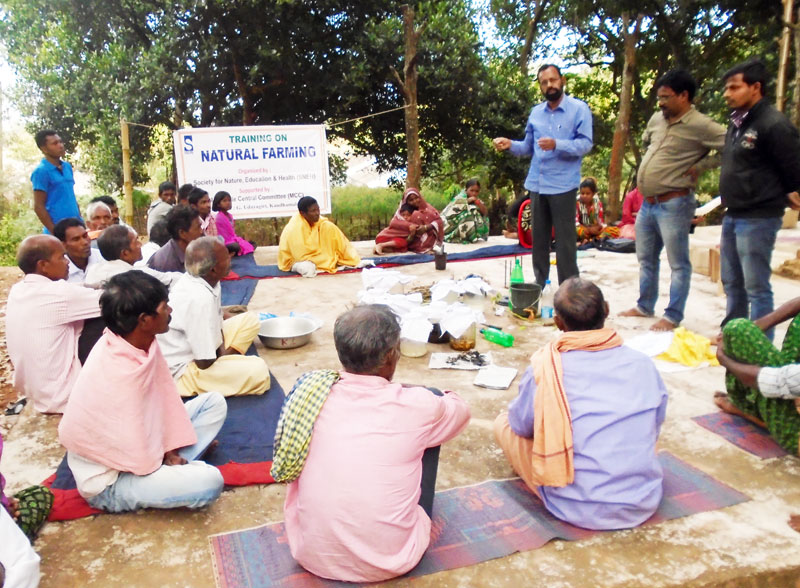 SNEH began its peace-building intervention in the G. Udayagiri Block of Kandhamal district in Odisha, in the immediate aftermath of horrifying communal conflicts in 2008. Initiatives on conflict resolution and restoration of communal harmony and peace were undertaken in the beginning. Later, endemic issues like malnutrition, health, hygiene and sanitation, and livelihood strengthening activities were also included in the intervention.
SNEH began its peace-building intervention in the G. Udayagiri Block of Kandhamal district in Odisha, in the immediate aftermath of horrifying communal conflicts in 2008. Initiatives on conflict resolution and restoration of communal harmony and peace were undertaken in the beginning. Later, endemic issues like malnutrition, health, hygiene and sanitation, and livelihood strengthening activities were also included in the intervention.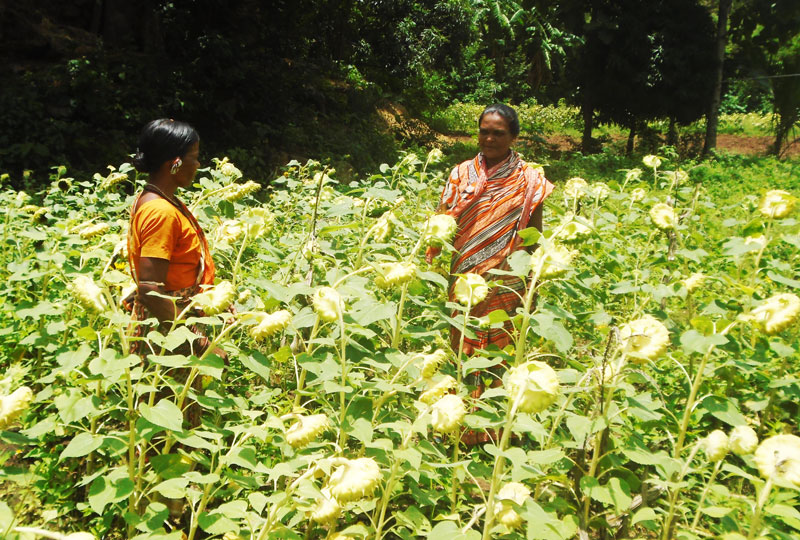 SNEH has introduced modern farming practices through popularisation of SRI (System of Rice Intensification) and row transplantation of paddy. Farmers have been trained in ‘natural farming’ through the use of Indigenous Micro Organisms (IMO) prepared by using locally-sourced materials. This new technology has also contributed to improve the health and nutrition of the local people.
SNEH has introduced modern farming practices through popularisation of SRI (System of Rice Intensification) and row transplantation of paddy. Farmers have been trained in ‘natural farming’ through the use of Indigenous Micro Organisms (IMO) prepared by using locally-sourced materials. This new technology has also contributed to improve the health and nutrition of the local people.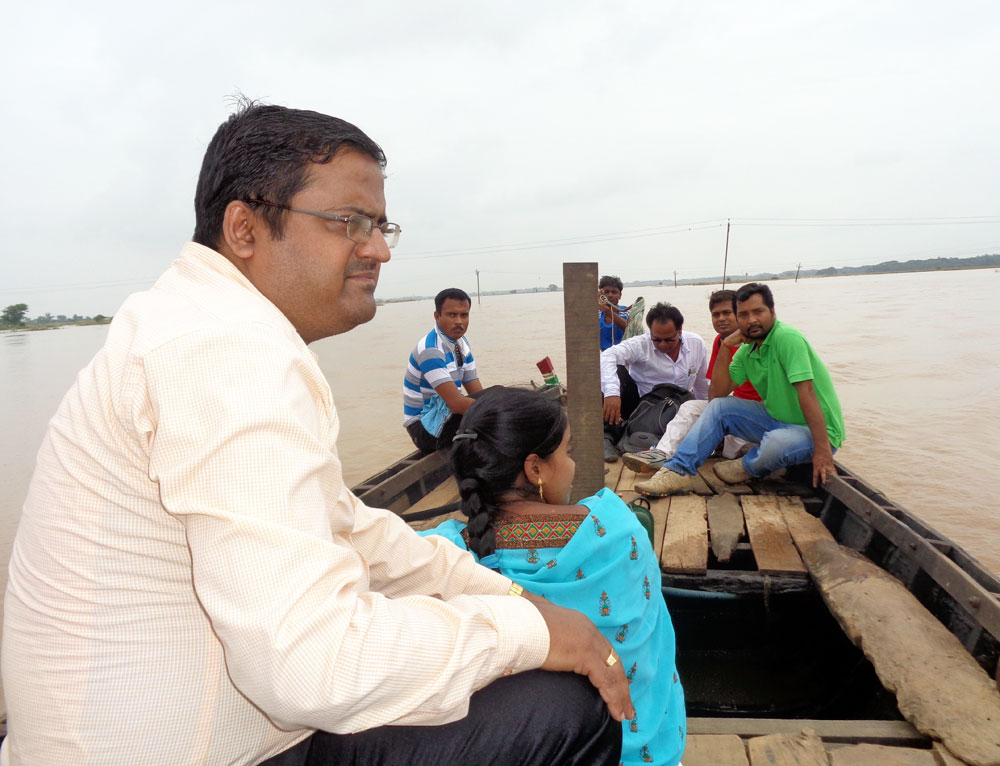 The floods of 2014 left more than nine lakh people, across 23 Odisha districts, marooned and homeless. The worst affected were the people of Jajpur, Kendrapara and Jagatsinghpur districts, where the district administration, in the aftermath of the floods, focused its evacuation and relief work. But the biggest challenge faced by the administration once the waters receded, was a plethora of ailments and epidemics like diarrhea, cholera, skin diseases and general fever, cough and colds among the flood-affected people. A more long-term problem was that the open wells, which were a primary source of drinking water for the people in these districts, had become contaminated. Urgent steps were required to clean and restore the wells, and spread awareness among the local people about purifying their drinking water.
The floods of 2014 left more than nine lakh people, across 23 Odisha districts, marooned and homeless. The worst affected were the people of Jajpur, Kendrapara and Jagatsinghpur districts, where the district administration, in the aftermath of the floods, focused its evacuation and relief work. But the biggest challenge faced by the administration once the waters receded, was a plethora of ailments and epidemics like diarrhea, cholera, skin diseases and general fever, cough and colds among the flood-affected people. A more long-term problem was that the open wells, which were a primary source of drinking water for the people in these districts, had become contaminated. Urgent steps were required to clean and restore the wells, and spread awareness among the local people about purifying their drinking water.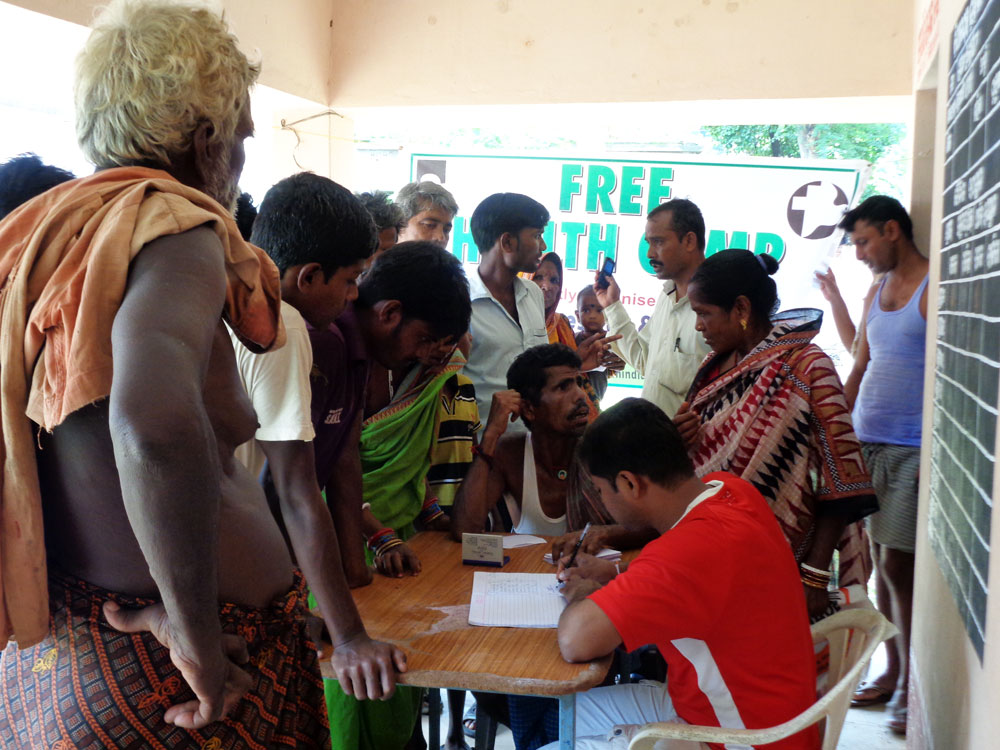 SNEH rushed a team of doctors, paramedics and volunteers to Patamundai Block in Kendrapara district, to administer emergency healthcare to the flood-affected people. SNEH organized health camps in the remote areas and distributed essential medicines, while simultaneously carrying out awareness programs about flood-related health hazards.
SNEH rushed a team of doctors, paramedics and volunteers to Patamundai Block in Kendrapara district, to administer emergency healthcare to the flood-affected people. SNEH organized health camps in the remote areas and distributed essential medicines, while simultaneously carrying out awareness programs about flood-related health hazards.